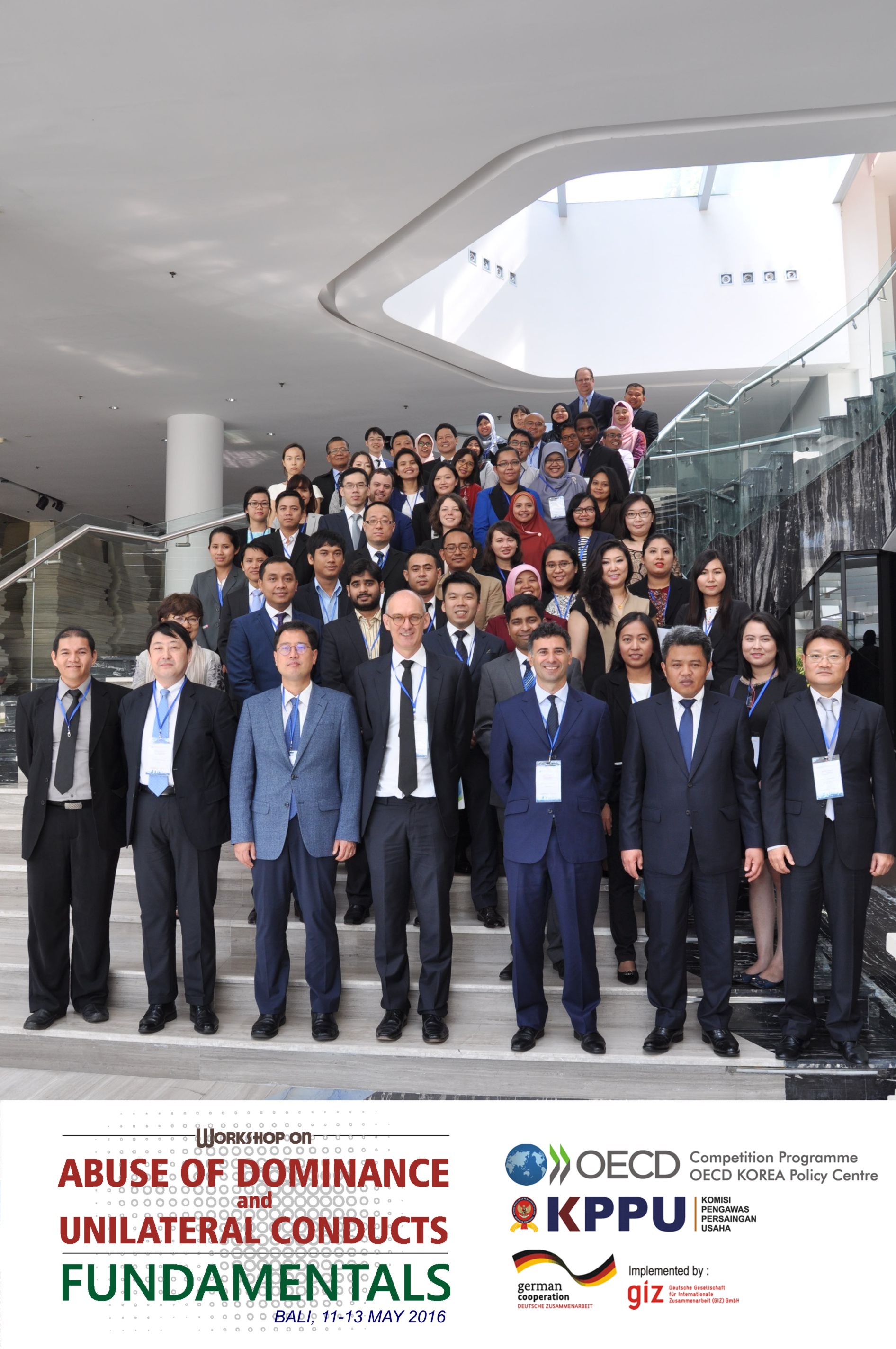Filter News
Latest News
Workshop in Bali Helps Building Capacity for Competition Authorities to Run Abuse of Dominance Cases

The OECD/Korea Policy Centre together with the KPPU and GIZ ran a 3-day technical workshop for more than 50 participants for competition authorities from across the Asia Pacific Region.
(Bali, 14 May 2016) - Proving abuse of dominance and unilateral conduct case is like building a house, brick by brick. We need to use the best materials and carefully construct the foundation, or else, the house will be ruined in the slightest earthquake.
The conduct itself, bring us to the intertwined questions. One must be able to prove the dominance of the firm as well as a conduct that may constitute an abuse of that significant market power, leading for instance to the creation of a barrier to entry for future competitors. None of these are easy tasks. Does the conduct raise competitors' costs, reduce their revenues, or prevent their access to key inputs or facilities? Does the activity constitute predatory conduct? These are some of the possible questions competition authorities are faced with when analysing abuse of dominance cases.
In order to answer to those questions, a Workshop on Abuse of Dominance and Unilateral Conduct: Fundamentals was held from 11 – 13 May 2016, in The Stones Hotel, Bali, Indonesia. The workshop was hosted by the OECD-Korea Policy Centre, Competition Programme and the KPPU, with additional support of German International Cooperation (GIZ).
Officially opened by the Director General of the Competition Programme of the OECD-KPC, Mr. Daewon Hong, and the Chairman of KPPU, Dr. Muhammad Syarkawi Rauf, this workshop was designated for investigators who are, or will be, actively involved in day-to-day investigation activities within competition agencies in the region. The workshop was focusing on building the fundamental skills to establish abuse of dominance cases and prosecution, with specific feature on actual and hypothetical case studies to deepen participants’ understanding on the issue.
A wide array of international experts from OECD, United States, Australia, South Korea, and Japan, brought their insights and experiences to workshop participants from 14 (fourteen) economies in the Asia Pacific region. The Chairman of KPPU himself, by his keynote address explained that abuse of dominance constitute the third largest case by KPPU after bid-rigging and cartel behaviours. The latest cases were involving ground handling services in Ngurah Rai International Airport, financial services, and port services. From such experiences, Rauf highlighted 5 (five) considerations for a success of abuse of dominance and unilateral conduct cases in Indonesia, namely evidence of dominance, evidence of abusive conducts, impact of dominance, motive or intent of dominance, and prevailing conditions where the owner of dominance cannot exercise it dominance.
The three-day’s workshop might not be enough to solve the competition agency’s obstacle in handling the abuse of dominance and unilateral conduct cases, but it surely gave the necessary foundation to build a house. (EWN)
